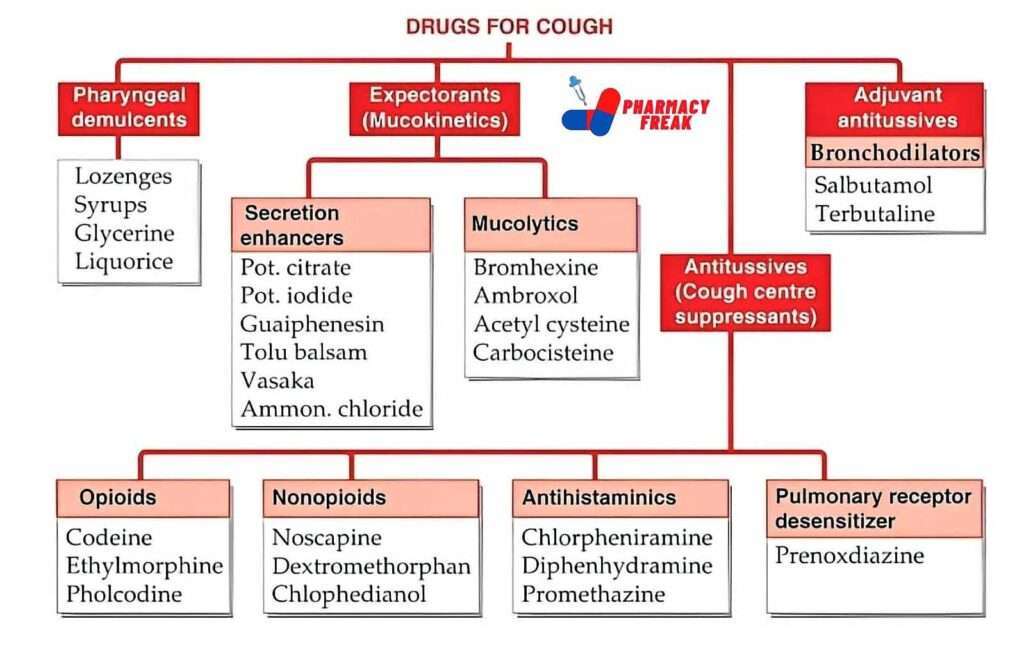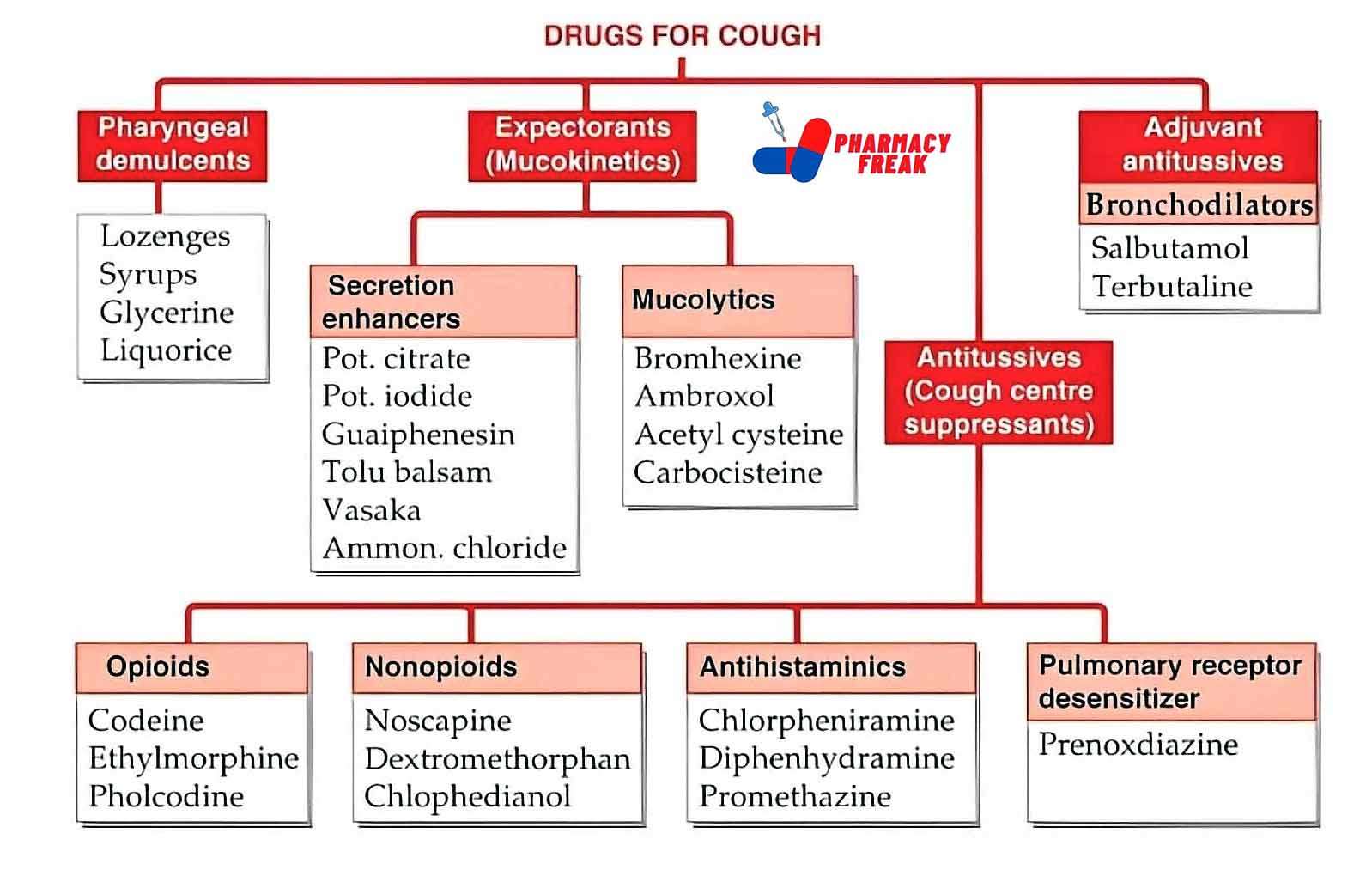DRUGS FOR COUGH
The best of cough medicine for you will depend on the type of cough you have and any underlying medical concerns you might have. There are various different types of cough medicines available.
- Cough suppressants: By preventing your cough reflex from activating, these medications can help you cough less frequently and more mildly. They are frequently employed to treat dry coughs that don’t produce any mucus. Dextromethorphan and codeine are two typical cough suppressants.
- Expectorants: These medications help you cough up more easily by thinning the mucus in your airways. They are frequently applied to wet coughs that are heavily mucus-producing. Guaifenesin and bromhexine are two typical expectorants.
- Combined cough medications: These medications, which are frequently used for coughs with both dry and wet components, combine expectorants and cough suppressants.
Before taking any cough medication you should always take advice of a pharmacist or a doctor because some cough drugs may have side effects or may interact with some other drugs which you are already taking. If you cough is severe or chronic and with that you are feeling other difficulties you should contact your doctor.
Classification

DRUGS FOR COUGH
- Pharyngeal demulcents – Lozenges, Syrups, Glycerine, Liquorice
- Expectorants (Mucokinetics)
- Secretion enhancers – Pot. citrate, Pot. iodide, Guaiphenesin, Tolu balsam, Vasaka, Ammon. chloride
- Mucolytics – Bromhexine, Ambroxol, Acetyl cysteine, Carbocisteine
- Antitussives (Cough centre suppressants)
- Opioids – Codeine, Ethylmorphine, Pholcodine
- Nonopioids – Noscapine, Dextromethorphan, Chlophedianol
- Antihistaminics – Chlorpheniramine, Diphenhydramine, Promethazine
- Pulmonary receptor desensitizer – Prenoxdiazine
- Adjuvant antitussives (Bronchodilators)– Salbutamol, Terbutaline
Related
Reference
- CLASSIFICATION OF DRUGS- KD Tripathi
- National Library of Medicine- Cough Suppressant and Pharmacologic Protussive Therapy

I am a Registered Pharmacist under the Pharmacy Act, 1948, and the founder of PharmacyFreak.com. I hold a Bachelor of Pharmacy degree from Rungta College of Pharmaceutical Science and Research. With a strong academic foundation and practical knowledge, I am committed to providing accurate, easy-to-understand content to support pharmacy students and professionals. My aim is to make complex pharmaceutical concepts accessible and useful for real-world application.
Mail- Sachin@pharmacyfreak.com
